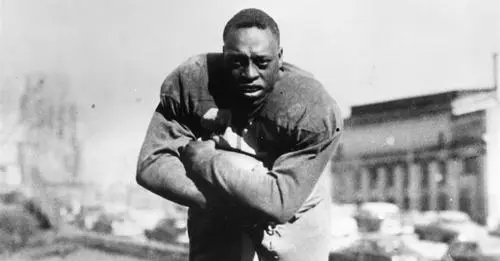Early Challenges and Triumphs
Grier’s impact on college football cannot be overstated. As a standout linebacker and fullback for the University of Pittsburgh in the mid-1950s, he became the first Black player to participate in the Sugar Bowl, a milestone achievement in a sport and a region fraught with racial segregation. The 1956 Sugar Bowl against Georgia Tech was not merely a game but a battleground for civil rights, as Grier’s inclusion prompted significant resistance from segregationists.
The Sugar Bowl Standoff
Governor Marvin Griffin of Georgia, a staunch segregationist, initially opposed Georgia Tech’s participation in the Sugar Bowl against an integrated team. His efforts to block the game underscored the deep-seated racial tensions of the era. However, backed by widespread support from students, universities, and public figures across the nation, Grier’s participation prevailed. The slogan “No Grier, no game” resonated loudly, forcing a reluctant acceptance of integration on the football field.
Facing Adversity with Dignity
Grier’s journey to New Orleans for the Sugar Bowl was fraught with challenges. Despite being an integral part of the team, he was denied accommodations at the whites-only hotel where his teammates stayed. This segregation was a harsh reminder of the racial divides that permeated Southern society at the time. Yet, Grier found solace and support within the Black community of New Orleans, where he was warmly welcomed and cared for during his stay.
Life Beyond Football
Beyond his groundbreaking role in college football, Grier’s life was defined by a commitment to education, service, and family. After earning a degree in business from Pitt and serving as a captain in the United States Air Force, he embarked on successful careers with U.S. Steel and the Community College of Allegheny County. His dedication to his community extended to his involvement in the Elizabeth Dole Foundation, supporting military caregivers.
Legacy and Recognition
Throughout his life, Grier received numerous accolades that reflected his impact on sports and civil rights. Inductions into the Pitt Athletics Hall of Fame and the Sugar Bowl Hall of Fame stand as testaments to his athletic prowess and courage. However, to those who knew him best, including his daughter Cassandra, Bobby Grier was much more than a trailblazer; he was a loving father, a pillar of strength, and a role model for perseverance in the face of adversity.
Conclusion
Bobby Grier’s passing marks the end of an era, but his legacy as a pioneer and a gentleman endures. His ability to navigate the turbulent waters of racial prejudice with dignity and grace serves as an inspiration to future generations. As we reflect on his life, let us remember Bobby Grier not only for his achievements on the football field but for his enduring impact on American society as a whole. He was a man who transcended the limitations imposed by others, leaving behind a legacy of courage, integrity, and compassion.
